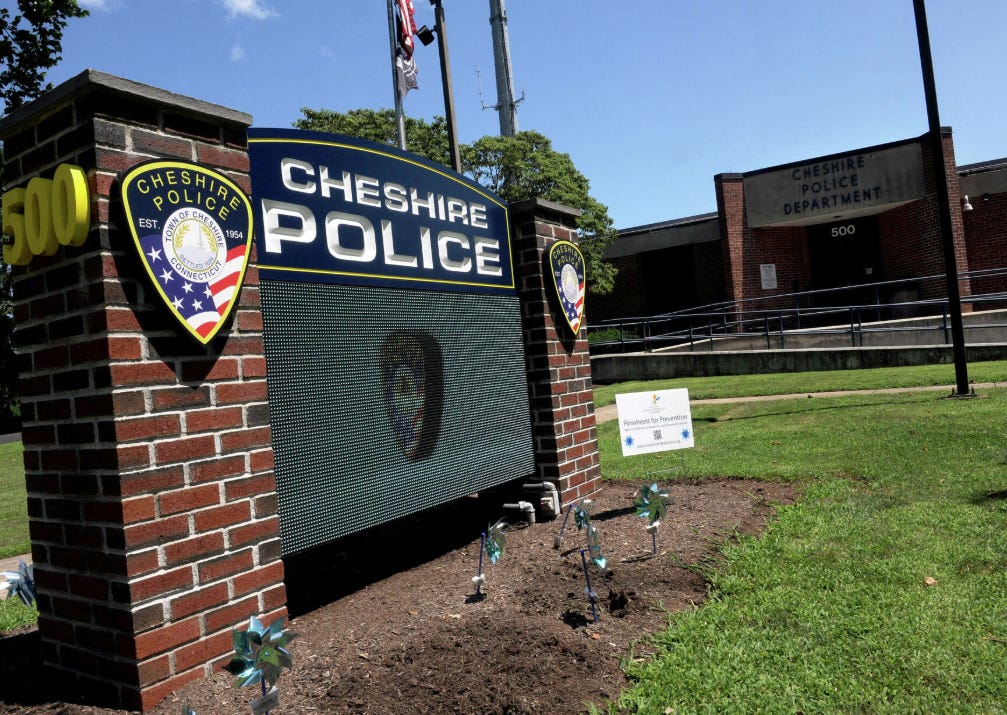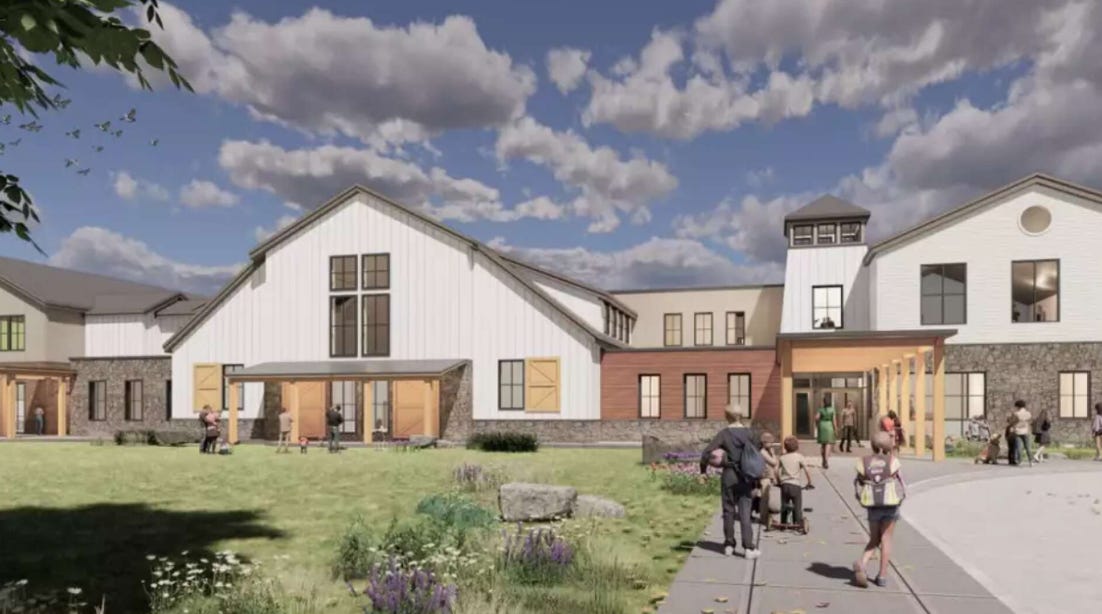Supporting the services the people demand, need and rely on, moves Cheshire forward.
Cheshire Democrats haven't expanded services. We found ways to maintain and fund Cheshire's priorities, with a responsible budget.
It’s election time so there are a lot of campaign promises being made by candidates. This is to be expected, and we all love the energy that comes with new ideas and fresh voices. But when wild campaign promises are made from people that have been engaged in the process (and know better), these ‘promises’ are simply disrespectful of voters. We’re speaking specifically of promises to ‘cut taxes’ or the subjective claim that ‘spending is out of control’ and the suggestion that Cheshire voters are being treated like ‘cash cows.’ When someone says they can cut taxes, your first question should be ‘what services are you planning to cut?’ Because just maintaining the services we have and with costs going up every year (wages, health care, insurance, energy etc.), cutting staff and services is the only way to truly reduce taxes.
On the Council our primary role every year is reviewing the budget the Town Manager proposes and ultimately voting to approve a budget. Reviewing the operating budget is a process that takes a series of budget meetings, including most town departments and the school administration, for about six weeks in March and April each year. The whole process generally takes nearly thirty hours of detailed review, deliberations and decision-making. We all take it very seriously.
Over the past two years, the new Council majority has been determined to make the budget process more transparent and invite more participation from the public. We organized a session on a Saturday morning, for example, and held several meetings at the firehouse, Artsplace, and the water treatment plant. We also added ‘public comment’ time to the agenda for each budget meeting and held an open forum half-way through the process to give Cheshire residents and taxpayers a chance to voice concerns and offer feedback. Following adoption of the budget we also provided a commentary of the process and decision. You can read it here: Council votes 5-4 on the FY25-26 operating budget
The average annual budget increase over the past decade has been about 3.1%. But due to a number of factors (school construction debt, inflation, lost state and Federal funds, etc.), budget increases have been higher over the past three-four years. By comparison, the budget increase in FY24 was nearly 6%. The budget increases in the last two years have declined to 5.23% in FY25 and 4.3% this year. No one can see the future, of course, but with significant new revenue coming from the commercial and residential development up near I-691 (starting in the FY27-28 budget year) and with the yet to be determined but potential sale of town-owned school properties (Chapman and Darcy), getting back to more typical budget increases (near 3%) is realistic. Lower budget increases, means more moderate tax increases as well. But it won’t be easy.
All this assumes stronger grand list growth than some Cheshire residents appear to want, more generous education funding from the state (unlikely because it’s been level for two decades), a bending of the cost curve downward for health coverage, wages and energy (also unlikely) or some combination of these factors. Never mind the fact that, due to decades of kicking the can down the road, we have aging schools that will need to be addressed sooner rather than later. A new middle school or high school will have a larger price tag than the two new elementary schools. No matter who is leading the Council, it’ll be difficult to limit budget growth to 3% (simply keeping up with wage growth) if we don’t have significant revenue increases (either from grand list growth or state support) and cost reductions (via lower health care costs, wages and/or energy costs) while investing in school modernization, and keep up with paying our police, librarians, community counselors, teachers, senior services staff, paraeducators, waste water treatment staff, and other vital municipal employees, the wages they deserve, so they can continue to live and work in our community.
Anyone claiming to be able to cut taxes without outlining what services they’ll cut is misleading (or unrealistic) to say the least.

This past year we were facing a perfect storm. A major reduction in state and Federal revenues, a flat grand list growth year and above-average inflation across insurance, energy and wages created a dire situation. We had to close a $15 million gap between revenues and funding. Given this extreme situation, and just as an exercise, we looked at how many positions on the town side we’d need to cut to get to $1 million worth of ‘savings.’ In this simulation we took away at least one position in each town department. The total number of positions to reach the $1 million in ‘savings’ was twenty positions. Since one mill is worth about $4 million of value, this means after cutting twenty positions we’d only reduce the mill rate by 0.25. For the ‘average taxpayer’ in Cheshire a 0.25 mill rate reduction equals about $6.75 a month ($81.00/year.) This isn’t nothing but for $81 we’d be eliminating key positions in town government (and reducing some services that our residents rely on), putting additional stress on already hardworking town employees and reducing the effectiveness and efficiency of some of the services provided. In other words, we wouldn’t really be realizing ‘savings.’
It would take cutting twenty town staff positions to achieve a reduction of $6.75/month for the ‘average Cheshire taxpayer.’ We wouldn’t even realize these savings.
In another theoretical example, there is one service the town provides – curbside trash collection – that many other towns don’t provide, even some with higher mill rates than Cheshire. Since the town outsources curbside trash collection, we could theoretically eliminate the service and not cut town staff. The cost is about $2 million per year. This would be a one-time mill rate reduction of about 0.5 mills. So, the ‘average taxpayer’ would see a reduction in their taxes of about $162.00. But the cost for households to then go out and hire a trash collection service would likely be $300-$400 annually. As you can see, in this case, the mill rate can be reduced but a taxpayer’s net costs for the same service more than doubles. In other words, town services offer a big bang for the buck.
Most of us in town don’t use that many town services until we need them (unless you have kids in Cheshire schools.) But the number of services provided, the volume of work by each town department and the value on a per capita basis are very impressive. This list is only a snapshot of all the services our town departments provided last year:
ArtsPlace with over 1200 students and 141 art classes and over $125k in revenue, costs Cheshire $9.49 per capita.
The Building Department with over 7500 inspections performed (85% within 24 hours of the request) and 3000 permits issued costs Cheshire $15.00 per capita.
Our volunteer Fire Department with 1,024 responses (2.8 per day) and their ability to have an effective fire fighting force on scene, within 15 mins 96% of the time, costs $50 per capita.
Human Services with over 1,850 clinical contact hours, 2200 youth program participants, 1126 food vouchers distributed, and 10,500 rides provided for seniors, costs $33.10 per capita.
Our Library with over 166,000 visits, 9000 card holders, over 265,000 borrows of physical materials, over 500 library programs held with over 17,000 participants, costs Cheshire $48 per capita.
Our Police Dept with over 35,000 total incidents (an avg of 729 per officer), costs us $191 per capita.
Public Works with over 560 work requests from the public, nearly 8500 tons of solid waste collected, eighteen playing fields lined and maintained, 200,000 sqft of public buildings to maintain, 304 lane miles of streets swept, 800 catch basins maintained, and hundreds of trees removed costs, Cheshire $206 per capita.
Our Recreation Dept with over 500 programs offered, 5400 program participants, over 13,000 special event attendees, 725 Mixville Park passes sold, and 147 pavilion rentals, costs $36 per capita.
Our Town Clerk with over 2300 licenses issued, 3,800 land records recorded, and over $610,000 in land conveyance taxes collected, costs us $7.34 per capita.
We have a lot to be proud of in Cheshire. A recent ranking of ‘best places’ to live had Cheshire at #11 in Connecticut. People move here for the schools, but they stay here because of everything else we have to offer and because this is a safe, well-run town at a tremendous value for the taxpayer. The proof is in all the new residential and commercial development we see around town, businesses investing in our town and the increasing demand for and value of our property.
All town councilors are concerned about rising taxes, especially on our fixed and lower-income taxpayers. As several of us have said many times before, we need to investigate ways to alleviate more of the burden from our older residents with lower incomes. This past year the town’s tax reduction programs resulted in over $500,000 in tax reductions for hundreds of households. It’s possible we could do more (and several of us really want us to do more) especially for veterans and older residents, but we also need to be careful not to shift too much of the tax burden on young people and families. Raising a family is more costly than ever and the President’s economic policies are clearly slowing the economy. Further, the proposed cuts to SNAP, Medicaid and Medicare will negatively affect the most marginalized families in our community at a time when the Cheshire Food Pantry is servicing more families and seniors than ever. This is assuredly not sustainable.
The only way to truly cut taxes is to cut services that many of our neighbors count on every day, every week, every month, every year.
Getting back to the theme of this article, beware of candidates claiming to be able to lower your taxes. It’s a fundamentally disingenuous claim. Haven’t we all had enough of being lied to? The only way to truly cut taxes is to cut services that many of our neighbors count on every day, every week, every month, every year. Based on the per capita data above, we hope you see that spending is not ‘out of control’ – unless one feels we shouldn’t have a great library, provide transportation for seniors, efficiently support builders and developers, get to emergencies quickly, provide public safety, provide summer camps, playgrounds and ball fields, provide a quality education for our kids and so on. All of these services and more help to make Cheshire a great place to live. But as with everything else, we only get what we pay for.
Election Day is November 4th. Early voting starts October 20th. Please vote. Thank you.








Thank you Jim and Fiona for your measured article on taxes in Cheshire. I am so happy to pay my taxes and get the services you’ve outlined. Also happy we are paying our people living wages and ecstatic to be bringing the pension program back to our police force.
Thank you for your service over these past two years!
Excellent explanation of the tax/budget situation